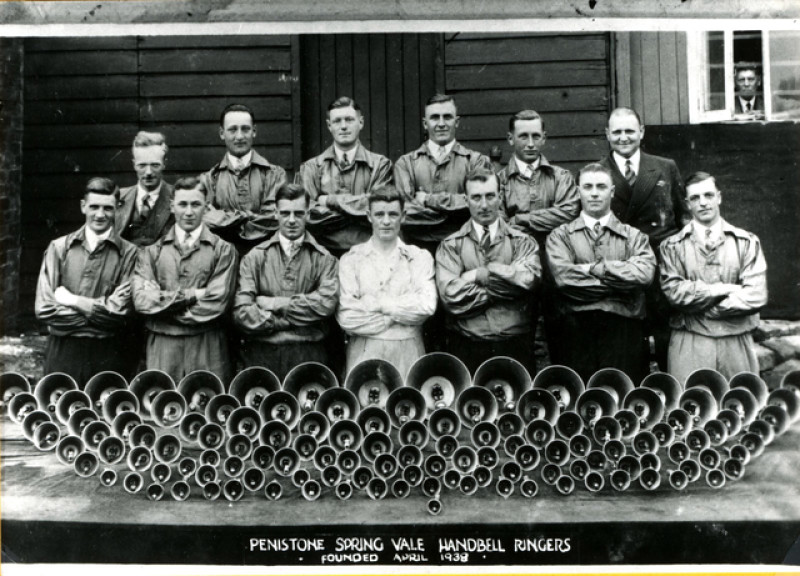Hand-bell ringing may not be synonymous with Japan but a book about the popular Barnsley past time now sits on the shelves of all the country's universities.
Author Peter Fawcett's has put together 'Ringing for Gold' which charts the history of hand-bell-ringing from its birth in the 1500s through to its prominence in working-class communities and up to the present day.
It covers all known handbell bands in the Barnsley area including those at Silkstone, Darton, Thurlstone, Darfield, Royston, Barnsley and Penistone.
Peter's book, which is the culmination of 35 years of research, has also attracted attention from outside of the borough - particularly from overseas.
The 63-year-old has had a request from the Japanese Handbell Ringers' Association for the book to be translated, and orders have been shipped to Australia and the USA.
Peter, of Cleckheaton, said: "In recent years handbell ringing has taken off in places like Japan and Hong Kong where it is big, particularly in the last 20 years.
"Every university in Japan has a copy of my book because they thought it was so important.
"The movement does need a boost and that's one of the reasons why I wrote the book."
The past time pre-dates the brass band movement and Peter said both grew from the need to provide music in village churches and for street entertainment and dancing during 'wakes' which were holidays for working people in industrial areas.
The 19th century saw the development of hand-bell bands from small 12 bell groups ringing simple popular tunes, to champion bands using 150 or more bells to perform music from overtures and operas.
Peter said there are hand-bell bands of all sizes and abilities throughout the country, and not only is it hugely popular in the USA, Canada, Australasia, Japan, Hong Kong, Korea, Taiwan, and Singapore, but it is also gaining popularity in Germany, Estonia and Finland.





























